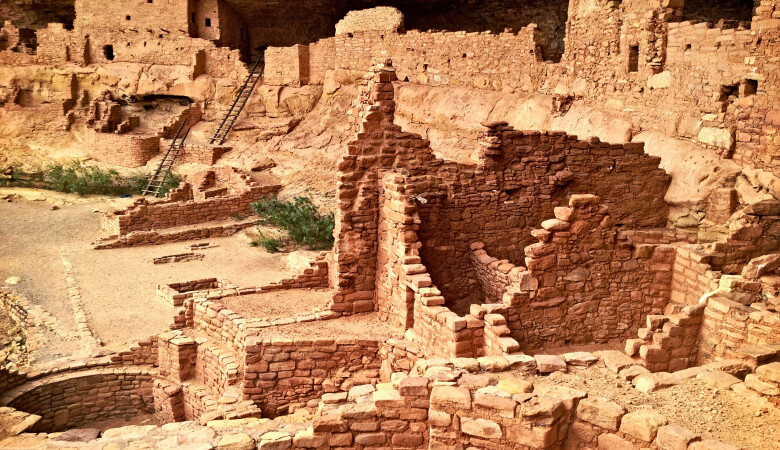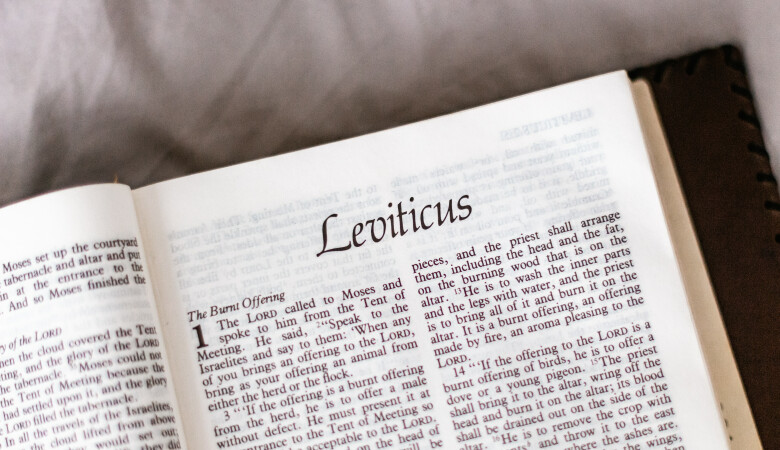Jesus Brings Many Sons to Glory (Hebrews Sermon 7 of 74)
October 17, 2010 | Andy Davis
Hebrews 2:10-13
Salvation by Promise, Jesus Christ
I. The Center of our Salvation: Almighty God
Some verses just unfold like a cave of treasure or like one of those little toys you get that has all these little secret hidden compartments and you keep learning. It's this cleverly made thing. Made of wood perhaps, with little secret compartments and you have to learn how each one of them opens, and inside each one, there's a gold ring or a silver chain or some new thing. And that's the way I look at this passage that we're going look at today, especially verse 10. I was saying to some of the men as we're praying, as I worked on the sermon this morning, it was 27 minutes on verse 10 alone. So if 27 minutes from now, we're still on verse 10, don't despair, just listen and take it in because it's an astonishing verse. But all of them are magnificent.
And so we're going to learn from this text, the greatness of Christ, the greatness of his salvation that he works for us. But we're going to go immediately right away to the center of the universe. We're going to go right away to the center of everything, and that is to God. God is the focus of verse 10. God's thoughts, what God is doing in salvation, what it was fitting for God to do. God is the center of verse 10, as God as the center of all things. God is the center of the universe. And so the author right away in verse 10 emphasizes God's central role in the universe. "For it was fitting for him, [God, was fitting for him] for whom are all things and through whom are all things, in bringing many sons to glory, to perfect the author of their salvation through sufferings." So we're going right away to the idea of God and how healthy is it for us to do that.
We talked recently about how we are tempted constantly to drift away from God, away from Christ. We need to know that everything in this universe exists for God. Through God. By God. That God is the center of all things. We are living in God's house. We are playing with God's things. We are eating at God's table. We are sleeping under God's roof. We are breathing God's air. We are wearing God's clothes. This is God's universe that we're in. We are welcome guests as created beings, created in his image. We are adopted sons and daughters through Christ but it's God's universe.
The Essence of Our Sinfulness: Putting Man at the Center
Now, the essence of our sinfulness is to put man at the center of all things and to relegate God increasingly to nothingness. A practical atheism. And here, the word that comes to my mind is the word secular. We live in a secular world, a secular society. And what is the essence of our secular society of secular education in secular schools of secular banter on talk radio of secular perspectives and the news media of secular mentality and political debates? The essence of secular America is one central lesson and is being drummed into us every day. God, if he even exists, is irrelevant. That's the lesson. If he even exists, and it's up to you to decide, you can do what you want in your own little private world but if he even exists, God is irrelevant to this world. Irrelevant to your chemistry midterm. He's irrelevant to who wins the big football game on Saturday afternoon. He's irrelevant to your plans for a career. He's irrelevant to the scenery at Yosemite National Park. Irrelevant to the economic conditions in the United States. God just doesn't matter because I notice he's not really brought up in any of those discussions. He's never mentioned at all. But when you enter the world of the Bible, it's an entirely different issue.
When you step into God's world through the scripture, it's a whole different thing. Amen? You walk in through Genesis 1 and right away it's, "In the beginning God created the heavens and the earth. Now the earth was formless and void and darkness was over the surface of the deep and the Spirit of God was hovering over the waters. And God said, 'let there be light' and there was light." This is God's universe. And God isn't confused about that, by the way. He knows it's his universe. He wants us to know it too by faith. And so in Romans 11, Eric already quoted it, "For from him and through him and to him are all things. To him be glory forever and ever. Amen." And so, a God-centered salvation really is the story of the whole Bible. That's what it's about. God is the alpha and the omega of human salvation. Human sinfulness mars God's universe and God will have it out, and God alone can remedy this pollution and bring us to glory.
God Crafted a God-Honoring Salvation: “It was fitting...”
So, we're talking in verse 10, in Hebrews 2:10 about a God fitting salvation. A salvation that's appropriate for God. It's fitting for God. The author speaks about what's fitting. The fitting nature of God's plan of salvation. It was fitting. It was appropriate. It was well suited to God and to his nature. God can do nothing that violates his nature. He never will. Everything God does lines up well with who he is and what he wills to do. God is never passive, friends. He's never along for the ride. He's never a victim taken where he doesn't want to go. And he's never waiting for man to make the final decision so he'll know what to do. If God wanted to save sinners, and he does, thank God for that. If God wanted to save sinners and bring them to glory, he had to do it in a fitting way.
And so what is the destination of our salvation? It is a fitting destination. It was fitting for God to bring us to a certain destination. And what is it? Glory. I'm going to speak more about this destination in a moment. But it was fitting for that to be the destination of this God-centered salvation, glory, which is God. That we would see the glory of God, and drink it in and immerse ourselves in it. It was fitting that that should be the destination of our salvation. It was fitting to bring many sons to glory. It lined up with the holiness of God. It lined up with the goodness of God to bring us to glory. It was fitting. And not only was the destination of our salvation fitting, it was fitting for God to bring us to glory, the means by which He brought us to glory was fitting. And what are those means? In Hebrews 2:10, it's Christ's suffering. That's what we're talking about here. It was appropriate. It was fitting for God to make Christ suffer in order to bring us to glory. That's very deep, isn't it? That's a profound concept.
The author's point here is, it was especially fitting for God to bring many sons to glory by making Christ perfect through suffering. Look again in verse 10, "For it was fitting for Him, from whom are all things and through whom are all things, in bringing many sons to glory to perfect the author of their salvation through suffering." So, for God to vindicate his holiness and to vindicate, to put his justice on display, it was appropriate for him to crush his only begotten, his beloved son. It was fitting for Him to do it. That's what the author's saying here. Romans 3:25-26 says, "God presented Him as a propitiation to faith in His blood." That word means a sacrifice, a blood sacrifice that takes away wrath. That's what propitiation means. God presented Christ as a propitiation through faith in His blood. "He did this to demonstrate his justice because in his forbearance, he had left the sins committed beforehand unpunished. He did it to demonstrate his justice at the present time, so as to be just and the one who justifies those who have faith in Jesus." So it's fitting for God to make Jesus suffer. The perfection of our salvation as it lines up with God's nature, it lines up with his attributes. He's saved us in the most appropriate and fitting way. Amen?
II. The Destination of Salvation: Our Glory
Alright, so let's look more at this destination of our salvation, and that is our glory in bringing... The NIV puts the glory part first. I've been giving you the NAS this morning because it puts God first, and that's what it doesn't agree. But the NIV then right away says, "In bringing many sons to glory, it was fitting that God," etcetera. The focus of salvation here are many sons, and we're going to talk more about the family aspect of salvation in a moment. But we're focused on many sons and in bringing many sons to glory, God is bringing us to glory. The aspect of bringing is a focus on God's activity, God's energy, God's leadership, God's power. God comes to lead us out of a place and bring us to another place.
Picture the exodus. And so He's bringing us to glory. Jesus is the way, the truth and the life as we sang. Isn’t that beautiful? I love that song. I almost broke decorum and said, "Eric, sing it again one more time." Couldn't do it. But I wouldn't have mind if somebody else did it. I would have been happy to sing it. Don't do it, though, please. But anyway. I'd go up and talk to say, "Yeah, sing it again."
But I just love it. Jesus is the way, the truth, and the life. He's the way we get to glory. There's a journey to be traveled here. We're going to a promised land, and the name of that promised land is glory. It's glory land, friends. That's where we're heading. He's bringing many sons to glory. And there's a richness to that expression, "many sons." Just zero in on the word "many." He's not saving just a few people. He's saving a lavish number of people. There's a multitude greater than anyone could count. It says in Revelations 7 that it is a multitude greater than anyone could count from every tribe and language and people and nation, standing around the throne, giving praise to the Lamb. And they're dressed in white robes, and they're praising God. It's a lavish, generous amount of the human race that's being saved here, many sons. And the word glory, I think is both a destination and a condition. In heaven, we will both see glory and we will be glory. You almost can't imagine the sights you're going to see. It's beyond imagination, like Paul caught up to the third heaven came back down and said, "Look, inexpressible." It's inexpressible. I can't put it into words.
In one of the songs we sang this morning, it says, "We're going to say goodbye to words. No more words." Hey, look, words are fine. That's what you're listening to right now. This right now, this preaching, this time in the Bible, is the essence of what it means to see through a glass darkly. We're not blind. We're seeing, but we're just seeing through a glass darkly, through nouns and verbs, through preaching, through the Word, through texts and paragraphs. But we will gladly trade it all, and no disrespect to the Word because the Word itself will live forever. But the printed page and this, it's gone for the reality itself. Amen? You're not going to be staring at love letters from your fiancé after you're married, right? It's just, no, you don't. There he is, there she is. We're going to see the bridegroom face to face. All the sights we're going to see. We're going to see glory. Revelation 21, "Then I saw a new heaven and a new earth, for the first heaven and the first earth had passed away and there was no longer any sea. And I saw the Holy City, the New Jerusalem coming down out of heaven prepared as a bride beautifully dressed for her husband. And I heard a loud voice coming from the throne saying, 'Now the dwelling of God is with men and he will live with them.'"
That's God saying that, saying, "At last, we get to be together and you get to see my glory." Awesome. Revelation 21:11 and 12, the New Jerusalem, it says shown with the glory of God and its brilliance was like that of a very precious jewel, like jasper, clear as crystal. And it had a great high wall with 12 gates and 12 angels at the gates. And it said later in that chapter, "I did not see a temple in the city because the Lord God Almighty and the Lamb are its temple. And the city does not need the sun or the moon to shine on it for the glory of God gives it light and the Lamb is its lamp." And so the entire city of God and the new heavens and the new earth are just gonna be radiant with the glory of God. It's just going to shine with the glory of God through Jesus. It's going to be magnificent. The colors will be beautiful, the proportions perfect in every way. The entire universe will glow, openly glow with the glory of God in bringing many sons to glory. That's what that means, that's where we're heading. A world of glory. God wanted to bring his adopted sons and daughters to the most glorious place imaginable, and that is to him to see his own glory and to worship him forever.
So we will see glory but we're also going to be glory ourselves. Remember, we're talking about what it was fitting for. It was fitting for God in bringing many sons to glory. Friends, it would not be fitting for us to be there and not be glorious too. For us to be there in ugly, wretched, stinking clothes of rebellion and sin, it would not be fitting. We would mar the place, we would be like black holes of darkness sucking the light in and making it disappear. We spent enough time doing that, amen? It's time to be done with that and so we're going to be made glorious ourselves so that we can fit right in. It would not be fitting any other way. And so we must be glorious ourselves, and we will... It says in Matthew 13, "Then the righteous will shine like the sun in the kingdom of their Father." You're going to just shine with the radiant glory of Jesus. The finished work of your salvation, glorification. You will shine with it, and your own good works and your achievements and that of the whole church will make the place glorious in a marvelous way.
It says again in Revelation 21, "The nations will walk by the light of the glory of God and the kings of the earth will bring their glory into it." So the kings are going to bring their own kind of glory into the New Jerusalem, and the glory and the honor of the nations will be brought into it and nothing impure will ever enter it nor will anyone who does what is shameful or deceitful but only those whose names are written in the Lamb's Book of Life. And so there will be our glorious deeds, purified by the blood of Jesus, purified by the fire of judgment day, but they'll be there and they will shine with their own unique glory, your own contributions to the glory of that city. The courage of the martyrs will shine in that place. So also the sacrifice of the missionaries who gave up everything to go to a distant land and tell people about Christ. The generosity of those who gave money, and time, and energy, and even a cup of cold water to advance the kingdom of Christ will shine there. Even those simple cups of cold water. That's a good hope for me, friends. I may not be a martyr but I can give a cup of cold water today. Amen? Matthew 10.
Let's have lots of that, but it's just going to shine with the good deeds done by faith. The best sermons preached by Spurgeon, and Luther, and Robert Murray McCheyne, and any of these other great preachers will shine there in a marvelous way. The boldness of George Whitefield's field preaching to the coal miners in Bristol. Nobody had ever done that before, that moment's just going to shine there. And so we're going to see glory and we're going to be glory, and our own holiness is a big part of that. We must be holy, so that if you look at verse 11, don't misunderstand, we're not done with verse 10. You know that, don't you? Okay. We're not. So those of you that are timing, and I hope no one is timing me. Alright.
But we're not done with verse 10, but just look at verse 11, it says, "Both the one who makes men holy and those who are made holy are of the same family." So the essence of our glory is our holiness. Our holiness, friends. God is light, and in Him, there's no darkness at all. We must be made holy. And that's what it means to be being brought to glory, we're being sanctified, we're being made progressively more like Jesus. That's what it means to be that we're being brought to glory.
I just see sanctification all over that. I actually believe that sanctification is just a subset of glorification. I say that with all seriousness, meditate on that and tell me what you think, but I think it is because it's just skipped in Romans chapter 8. It says in Romans 8:29-30, "For those whom God foreknew, he predestined to be conformed to the image of his Son." That's glory, friends. That we might be glory, conformed to the image of Jesus, that he might be the first born among many brothers. That's that family aspect, we'll get to that in a minute. And those he predestined, he also called, and those he called, he also justified, and those he justified he also glorified.
Now, you, systematic theologians say, "What happened to sanctification?" It's in there. It's just called glorification. We are being brought from glory to glory. We're being made ever more glorious by putting sin to death and becoming more like Jesus. That's what it means to bring many sons to glory. And so, it was fitting that God should do that to us. And how does he do it? He does it through Jesus. It was fitting that God through whom and for whom are all things, in bringing many sons to glory, should make the author of their salvation perfect through suffering.
III. The Pioneer of our Salvation: Jesus Christ
Now we're talking about Jesus at last. God's bringing you to glory through Jesus and no other way. There is no other way. And so, we're focusing on Jesus. Now, who is this, this author of our salvation? What an incredible word. The Greek word is archegos.
And so NIV has author of our salvation. So you could picture some great author sitting at a desk and writing an incredible novel, like Leo Tolstoy sitting at his desk there in his farm, in Yasnaya Polyana, in Russia. In 1862, he begins writing War and Peace, crafting arguably the greatest novel in literary history. Sprawling tale of Czarist Russia and Napoleonic invasion told through the eyes of five aristocratic families, 580 different named characters in the story, 580 of them. A complex psychological drama of immense scope and detail. All of it flowing from the mind through the pen of an author, who many have called the greatest author of all time, Leo Tolstoy. Well, he is not the greatest author of all time. Amen? Jesus is the greatest author of all time.
By the way, I went to Barnes & Noble and bought War and Peace. I'm on page two. I'm excited about that. I think my son called it a geek book. But I like historical novels so we'll see. I'll tell you in 12 years how it is.
But Jesus is the author of our salvation, writing it out. Writing all of it out. That's an incredible conception and not just my salvation, but the salvation of that multitude from every tribe, and language, and people, and nation. What a complex tale. Not 580 characters but a multitude greater than anyone could count. And the complexity of weaving their lives together with unbelievers and with culture and language and missionaries, and what a story. What a story. He's the author of our salvation, isn't that awesome? Christ wrote our salvation story. He says in Revelations 22:13, "I am the Alpha and the Omega." Those are letters. Those are Greek letters. I wrote the first letter and I'll write the last letter. I'm the first and the last. I am the beginning and the end. That's who I am. So your life story is salvation in Jesus. That's your story, if you're a Christian. And it was written in Jesus' blood before God said, "Let there be light."
Psalm 139, "All the days ordained for me were written in your book before one of them came to be." And this verse says it's Jesus that wrote the story, he's the author of your salvation. He comes up with a story line, the plot, the characters, plot, twist, climax; they knew them all. All of that, Jesus wrote it, written in his blood and he had to pay the price for it. So archegos can be translated author, but I don't even think that's the best translation. I don't think that's the best translation of this word. Other versions have captain of our salvation. I like captain, but I like pioneer better. Because both captain and pioneer get at something like what I think the Greek word... The home base of this Greek word is, usually refers to some kind of a hero. A great warrior who's a trailblazer and who through military conquest subdued an area and founded a city. He's then a patriarchal leader who has sons and grandsons. And he's looked on as the founder of the whole city and the surrounding region. That's what archegos tends to be in the Greek. ESV translates it's founder of our salvation. One who established a city in which you could live, pioneer maybe.
So Jesus is our pioneer. He goes on ahead of us boldly. He carves a trail that we must follow if we are to reach the promised land. There's no other way. So we're going to follow Jesus, the trailblazer our salvation. Trailblazer hero has to be a warrior with immense courage for the promised land has to be taken by force. Later in chapter 2, it talks about how he destroyed the one who held the power of death, that is the devil and freed those who all their lives were held in slavery by their fear of death. He's a hero. He's a conqueror. He's a fighter, warrior. You could picture the exploits maybe of a Daniel Boone carving his way through the Appalachian Mountains in 1778, blazing the wilderness trail to the fertile soil of Kentucky. He has to fight off the Cherokee and Shawnee and Delaware Indians who don't want settlers in their hunting grounds. With great knowledge and courage, he widens the wilderness trail by felling trees with an ax.
Try chopping down an oak tree with an ax. Just do it like in real life and see what it's like. I've done it. The tree was like this big in diameter, it took me a long time. But these guys were chopping down trees making corduroy roads. And before the end of the 18th century, that wilderness trail that he helped trailblaze was followed by over 200,000 settlers through the Cumberland Gap. He is a kind of an archegos, a warrior pioneer whose courage enables him to establish an ancestral town in enemy territory, where his descendants can flourish. But Jesus is the archegos of our salvation. That's what this word means. The bold pioneer who carves the way and destroys the enemy and founds a city. But now here's the deal. He had to pay for it with his life, friends. He had to suffer and die in order to bring us to glory. That's what verse 10 is talking about. In bringing many sons to glory, it was fitting that God for whom and through whom everything exists, should make the author or pioneer or captain of their salvation perfect through suffering. Suffering.
IV. The Cost of Our Salvation: Christ’s Suffering
Now, what suffering did our pioneer have to endure? Well, the suffering of incarnation, the suffering of temptation, the suffering of rejection, of persecution, of torture and physical death, the suffering of the wrath of God on the cross as our substitute, shedding his blood for us. That suffering. All of it. Well, what does it mean that Jesus is made perfect through suffering? It's a difficult phrase. It was fitting for God to make his son perfect through suffering. Well, it's not like us. We were greatly imperfect, wicked even, and we are made perfect through the salvation work of Jesus. That's not what's happening with Jesus. He was in no way ever anything but holy and perfect. What then does it mean that he was made perfect through suffering? Well, I think what it meant is that he had to live it. He had to do it. He had to actually go through that life. He had to be hungry and thirsty, and he had to be rejected and despised, he had to go through it. He had to live it on the earth, and he had to actually get nailed to the cross and shed his actual blood and die.
And without that, he couldn't have, I think the Hebrew word really is perfected or completed our salvation. He would've been an incomplete Savior without actually suffering. He had to suffer to be our pioneer, that's what I think it means. Had Jesus not suffered incarnation, he could not have shared our humanity and understood the physical nature of our misery; what it was like to be hungry and tired and feel pain and weariness. If Christ had not suffered temptation, he could not have been our sympathetic and merciful high priest who could say, "I understand what it's like to be tempted. I've been tempted in every way just as you are and so, I can be your merciful and faithful high priest." If he had not suffered rejection by his own people, he would not have been able to perfect God's salvation, complex salvation plan for the Jews, which called for them to reject their own Messiah, and then for God to show mercy on them and bring them back and regraft them back into their own olive tree. Read about it in Romans 11.
But he had to go through the suffering of rejection by the Jews. If Christ had not suffered physical torture and death, he could not have destroyed the devil and freed us from our slavery to fear of death. All of it was suffering and he had to go through it. And if he had not suffered the wrath of God, verse 17 says, in order that he might make atonement for the sins of the people, our sins would not be atoned for. But now they are. He's our perfect Savior. Amen? He is the perfect Savior for you and me. And he's been made perfect through suffering, and so, we have atonement for our sins.
V. The Reason for our Salvation: Family Ties
Why did he do it? What was his reason for doing? What was the connection to us? Well, here's where: I want to bring out the family ties between us and Jesus. We are of the same family as Jesus. Isn't that incredible when you think about that? This whole section here is saturated in family language. Look at verse 11, "Both the one who makes men holy and those who are made holy are of the same family." So Jesus is not ashamed to call them brothers. Verse 12, he says, I will declare your name to my brothers." Verse 13, again, he says, "Here am I and the children God has given me." On verse 14, "since the children have flesh and blood, he too shared in their humanity." On verse 16, "For surely it's not angels he helps, but Abraham's descendants." In verse 17, "For this reason, he had to be made like his brothers in every way."
Go back to verse 16, even though it's not really supposed to be in this sermon because it's supposed to be just on 10 to 13. Is it okay if I look at verse 16 for a minute? Is that alright? Rick said it is, so I can do that. Alright, so look at verse 16. "It's not angels he helps," who does he help? Abraham's family. "Abraham's descendants." He's keeping the promise made to Abraham. You remember that promise? Where God took him out on that starry night and he said, "Look up at the heavens and count the stars-if indeed you can count them... So shall your offspring be." Well, we've come to realize in the new covenant that that offspring is not physical, it's not just the physical descendants. Just because you had Abraham as your physical father, it didn't mean you're going to heaven. Romans 9 makes that very plain. Not all Abraham's physical children are the offspring of Abraham. But only those who believe, those who are by faith Abraham's children.
And so, even Galatian believers, Gentile believers, who have trusted in Jesus are engrafted into Abraham's family. They're family members. We are members of Abraham's family, he's our father in faith, it says in Romans 4. And so, there is this family. And so, Jesus in verse 16 of Hebrews 2, he doesn't help angels. What angels would need help? Fallen angels, demons, he doesn't... There's no atonement for demons, they're lost, they're going to hell, there's nothing that's going to happen for them. No gospel for them. But he helps Abraham's descendants, Abraham's family, and that's us. We who have trusted in him. And so, it says in verse 11 that Jesus isn't ashamed of us. Isn't that incredible? I mean, just let that roll around in your mind for a little while. Both the one who makes men holy and those who are made holy are of the same family. Jesus is not ashamed to call them brothers. Ashamed. That's astonishing.
Could there be anything in us that would make him ashamed? Might there be anything in your history that would make him ashamed to own you as his brother or sister? Romans 6:21 says, "What benefit did you reap at that time from those things you are now ashamed of? Those things result in death." There's all kinds of shameful things in our lives. But Jesus is not ashamed to call you brother or sister. Isn't that incredible? He's not ashamed. Welcomes it. On judgement day, he's going to acknowledge you and say, "He's my brother. She's my sister. They're with me." And in you'll go, through Jesus the door, right into heaven. He's not ashamed of you, not ashamed to own you. Do you see now how wrong it would be for you to act ashamed of Jesus now? Have you ever acted ashamed of Jesus? Have you ever been ashamed to say his name? I don't think there's any of us that could say, "I've never been ashamed to say Jesus' name." It's a great sin actually. Jesus said, "If anyone is ashamed of me and my words in this adulterous and sinful generation, the Son of Man will be ashamed of him when he comes in his Father’s glory with the holy angels."
I love sports and I like to watch sports. I think of the great moments on the ball fields and all that but I have to tell you, probably my favorite, favorite moment in sports happened January 30, 2000. And it wasn't even an athletic achievement. The athletic achievements had already occurred. It was Super Bowl 34, Kurt Warner had led the St Louis Rams to a very exciting victory over the Tennessee Titans. I couldn't care less about the Rams or the Titans but I watched the game. You know how it is, this is the Super Bowl. And he had led the Rams on a game winning touchdown drive and then the defense had somehow held off the Titans on the two yard line, the game ended. It was exciting game. And so they get Kurt Warner the MVP. And Mike Tirico of ABC stands there with a microphone in front of his face as 50 million people are watching this interview, I guess, or more. Who knows? And I love this, this is my favorite moment in sports, right here. Mike Tirico, "First things first, Kurt, tell us about that final touchdown pass to Isaac." Kurt Warner's answer, "First things first, Mike, I want to give glory to my Lord and Savior. Thank you, Jesus!" He said it louder than that actually. That's my favorite moment in sports.
Actually, his foundation is called First Things First Foundation. Isn't that awesome? First things first, I couldn't care less about the touchdown to Isaac, let's talk about Jesus. And not just thank God. Look, there's nothing wrong with saying God. God is fine. But let's say Jesus more. Amen? Let's say Jesus a lot. Thank you, Jesus. It's the name that divides us from the unbelievers. Let's say the name then. Let's not be ashamed of the name. And Kurt Warner said it with the greatest boldness I'd ever seen in my life. He did it again when he led the Arizona Cardinals into the Super Bowl. Same thing. He said, "You know what I'm going to say, but I'm going to say it anyway. Thank you, Jesus." He said the same thing. First time was better though, it was awesome. I mean, he was just so pumped. Been taken from the Hy-Vee convenience store and arena football to be Super Bowl MVP, and he just was overwhelmed more with his salvation than anything. I want to be with people like that forever. Amen? Saying, as strong as we can, "Thank you, Jesus!" And let's say it to our neighbors, and our co-workers, and our unbelieving family, and all these people, and let's not be ashamed to say the name Jesus. It saves people.
Everyone who calls on that name is going to be saved. Let them get all prickly and irritable and frustrated and then... I was like that. I was like that for two years. Boy, did I abuse the guy who led me to Christ. But he kept saying the name Jesus to me. And I eventually called on that name. And so we have fellowship. We're flesh and blood with him and so we share the same family. And Jesus agreed, because the children, verse 14, have flesh and blood. He shared in their humanity in the same family. We're flesh and blood. Like Laban said to Jacob when he came on the journey and he was there and he said, "You are my flesh and blood." And he welcomed him in. That's what Jesus is going to say to you and me. Amen? You are my flesh and blood. You just come right in here. And for Jesus, this was an eternal commitment. An eternal commitment to be flesh and blood with us. Why do I say that? He had to agree to take the body back up again, right? Because without taking the human body back up, it wouldn't be a resurrection. He had to be human before and after. He had to take up the body, you see?
And so he said after the resurrection, "Look at my hands and my feet, it is I myself, touch me and see. A ghost does not have flesh and bones as you see I have." And so Jesus shares with us in our flesh and blood. He's also a sharer with us in our life of faith. We relate to God only by faith. Remember I said, "We see through a glass darkly. We see him only by faith." And so Jesus is like us in that as well. Or was in his time on earth. Faith is temporary for us and it was for him, but look at verse 13, it says, "And again I will put my trust in him." It's a strange little verse. I had the hardest time when I first went through Hebrews carefully and I was memorizing scriptures and looking, I was like, "What is this here for? I will put my trust in Him." It's right in the middle of nowhere. I'm telling you, the author to Hebrews is a genius. His knowledge of the Bible is deep and real and he assumes a lot.
And if you're not tracking him on Isaiah 8:17, that's your problem, not his. He's moving right on. What is going on in Isaiah 8:17? That's what it's a quote of. Well, Isaiah the prophet, living in a time of great danger when the Assyrians were about to invade, and it seemed like God was hiding his face from Israel, said, "I'm going to trust God despite the fact, it seems, you're hiding your face from Israel." This is what 8:17 says, Isaiah 8:17, "I will wait for the Lord, who is hiding his face from the house of Jacob. I will put my trust in him." Jesus said that on the cross. Now, in what way was God hiding his face from Jesus at the cross? Well, you know in what way. He said, "My God, my God, why have you forsaken me?" Why are you hiding your face from me? And so he put his trust in God. He entrusted himself to God. It says in 1 Peter 2:23, "When they hurled their insults at him, he did not retaliate. When he suffered, he made no threats, instead he entrusted himself to him who judges justly." He trusted his life to God, he trusted his work on the cross to God. He put his trust in God.
And so when he calls out in a loud voice, "Father, into your hands I commit my spirit." And I think if you could just add more things, "Father, into your hands I commit this atoning work. Do something with it. I will put my trust in Him." That's what he said. And he's like us in that. He's made like a sinner, really. For whom God is hiding His face, he trust in God anyway, on the cross. And as a result, he loses none of his children.
Again, he says, "Here am I and the children God has given me." Isn't that beautiful? You are a child given to Jesus. God the Father gave the elect to Jesus, the children. He said, "Here, save them." And in effect, when it's all done, you know what's going to happen? He's going to stand with all of those children, all of his elect, all the ones he saved and says, "Here am I and the ones you gave me. I didn't lose any of them. I saved them all."
And so he says in John 17:6, "I have revealed you to those whom you have given me out of the world. They were yours, you gave them to me, and they have obeyed your word." And again, John 18:9, Jesus said, "I have not lost one of those you have given me." And again he says in John 6:39, "This is the will of him who sent me, that I shall lose none of all that he has given me, but raise them up at the last day." And so he says in Hebrews 2:13, "Here am I and all the children you gave me." 100%. Isn't that comforting? If you're God's child through Jesus right now, he's going to someday present you to God and say, "Here they are, all of them. I'm not going to lose any of them."
VI. The Consummation of our Salvation: Worship
And so what is the consummation of our salvation? It's worship. He says in verse 12, "I will declare Your name to My brothers; in the presence of the congregation I will sing your praises." We have here this great assembly of worship. We're going to a worship time. We're going to an awesome worship time, that's where we're heading. And so, again and again in the Book of Psalms, there's this great assembly that's pictured, assembly of worship. And so in the congregation, in the assembly, he says, "Here are my children, all of them are here." And "I will declare your name to my brothers and in the presence of the congregation I will sing your praises." The author of Hebrews describes that to Jesus. Jesus says that. This is the best and maybe even only clear verse in the entire Bible on Jesus singing. Aren't you looking forward to hearing Jesus sing at the wedding banquet of the Lamb? The bridegroom stands up and starts to sing, and the topic of his song, the praise of his Father. He's going to sing God's praise in front of us. Isn't that awesome? Isn't that awesome? !
Like Aslan in the Chronicles of Narnia, sings Narnia into existence and the magician's nephew, he just sings. And as he sings and the song changes in lilts, different parts of Narnia start getting created. That's how CS Lewis pictured creation, Aslan the lion, the Christ-like lion singing and creation coming. Well, it's going to be the end of the story then redemption is done and Jesus is going to rise at the wedding banquet and he's going to sing the praise of God. Isn't that cool? I think that's just an awesome thing. And we will be there and we will join in, and sing a new song, praising God. And we will worship Him forever.
VII. Application
What application can we take from this? We'll come to Christ, come to Christ now. It could be God brought you here today to hear this message, Jesus shed his blood. You've heard everything you need. I've been very clear about the cross. Very clear about faith. The need for repentance and faith. Apart from Him you're lost. But perhaps you're not lost. God brought you here today. All you need to do is look to Jesus by faith and put your trust in him, like the text says.
Trust in him and your sins will be forgiven. And you will be welcomed as a child of God. As many as received him, to those who believe in his name, he gave the right to become children of God. And you'll be one of those that he'll speak of, saying, "Here am I and the children God has given me." For those of you that are already believers, just understand the fellowship of suffering that Jesus has with you. He went through suffering so that he could help you in suffering. And you may be going through suffering right now. You may be going through psychological suffering, emotional, financial suffering, suffering with sin, temptation. Jesus knows and understands. Now, isn't it sweet that our present sufferings aren't even worth comparing with the glory that will be revealed in us? Isn't that wonderful? But it's still suffering. And Jesus can help you in your suffering because he's suffered too.
And thirdly, anticipate heavenly worship. Picture Christ singing. Can I speak a word to cool teenage boys now for a moment, who don't like to sing? Because it's not cool and none of their friends are singing. Jesus sings, friends. Jesus is cool. You should sing too, from your heart. Don't be embarrassed to sing. We should sing psalms and hymns and spiritual songs and praise God as Jesus did. So sing. Sing when you're grieving. Sing when you're hurting. Sing when you're suffering. Sing in anticipation of hearing Jesus sing over you. Fourth, be God-centered in your outlook. Fight secularism. Fight it. God matters to everything. At all times, God matters. And be willing to proclaim the name of Jesus in this secular world. Be willing to offend people with Jesus. And don't listen to any Satan back talk to you about "Well, you weren't loving, you weren't sensitive." Look, say the name of Jesus, say it boldly, say it like you're not ashamed of him because he's not ashamed of you.
And then finally, meditate on Jesus as the author of your salvation. If you're a literary kind of person, author, you'll like that. If you're more of a military history or kind of thing, go with Pioneer and Captain. But either way, just know this, Jesus is saving you and he's bringing you to glory and nothing's going to stop him. Close with me in prayer.






























